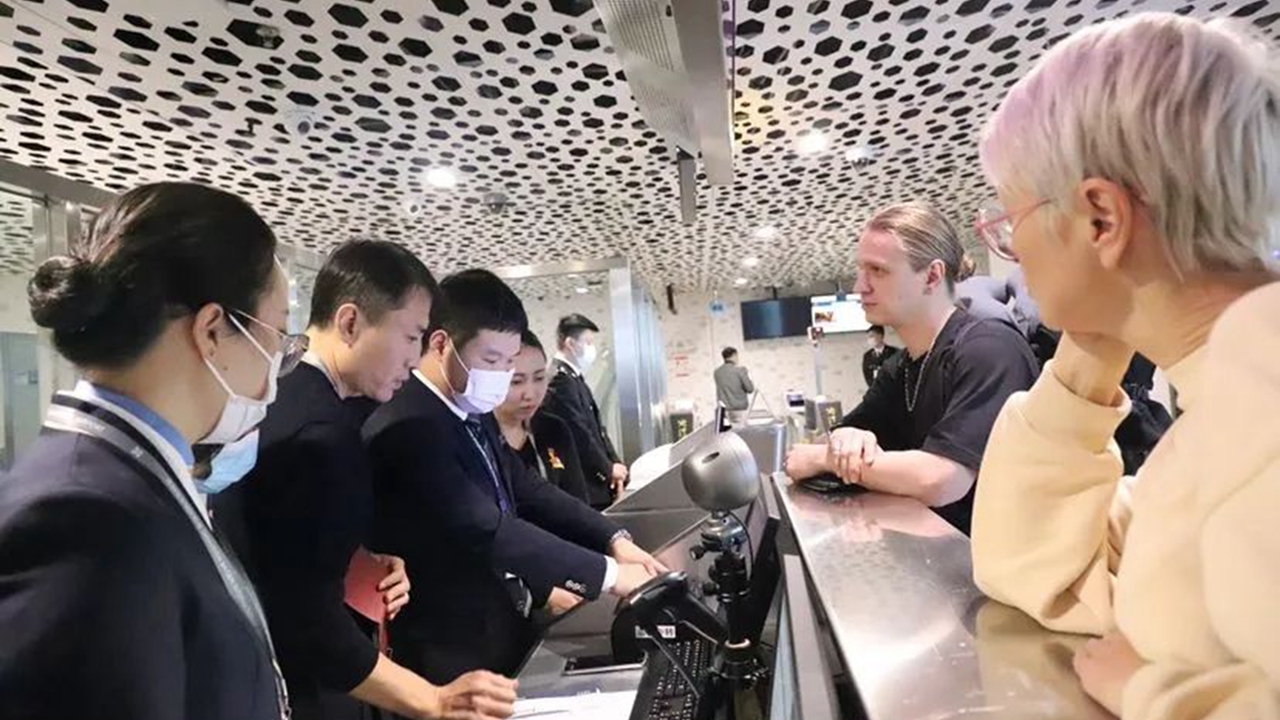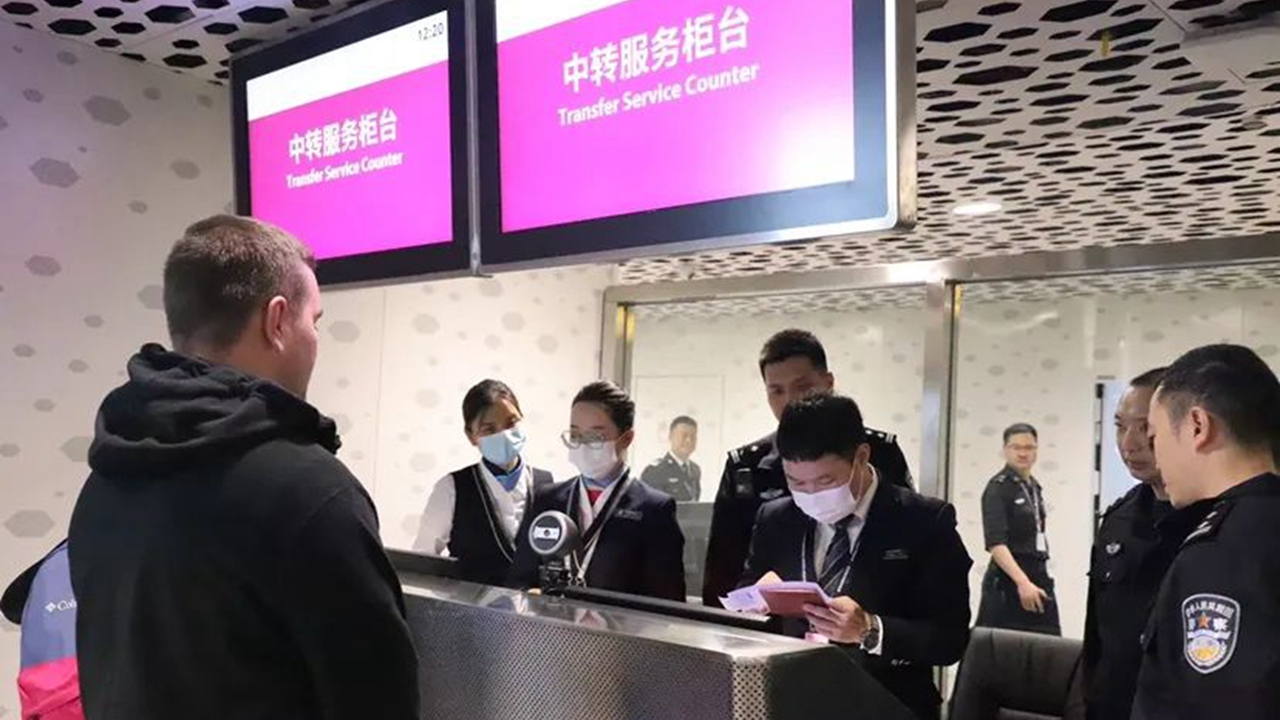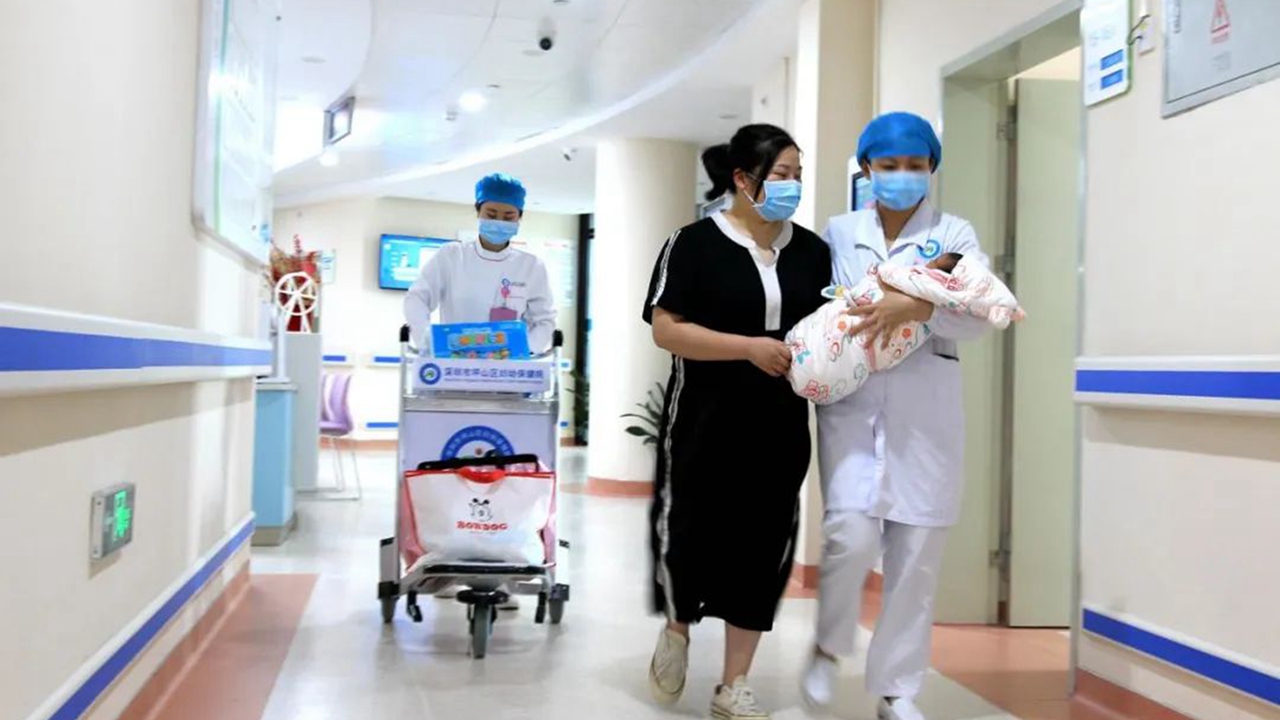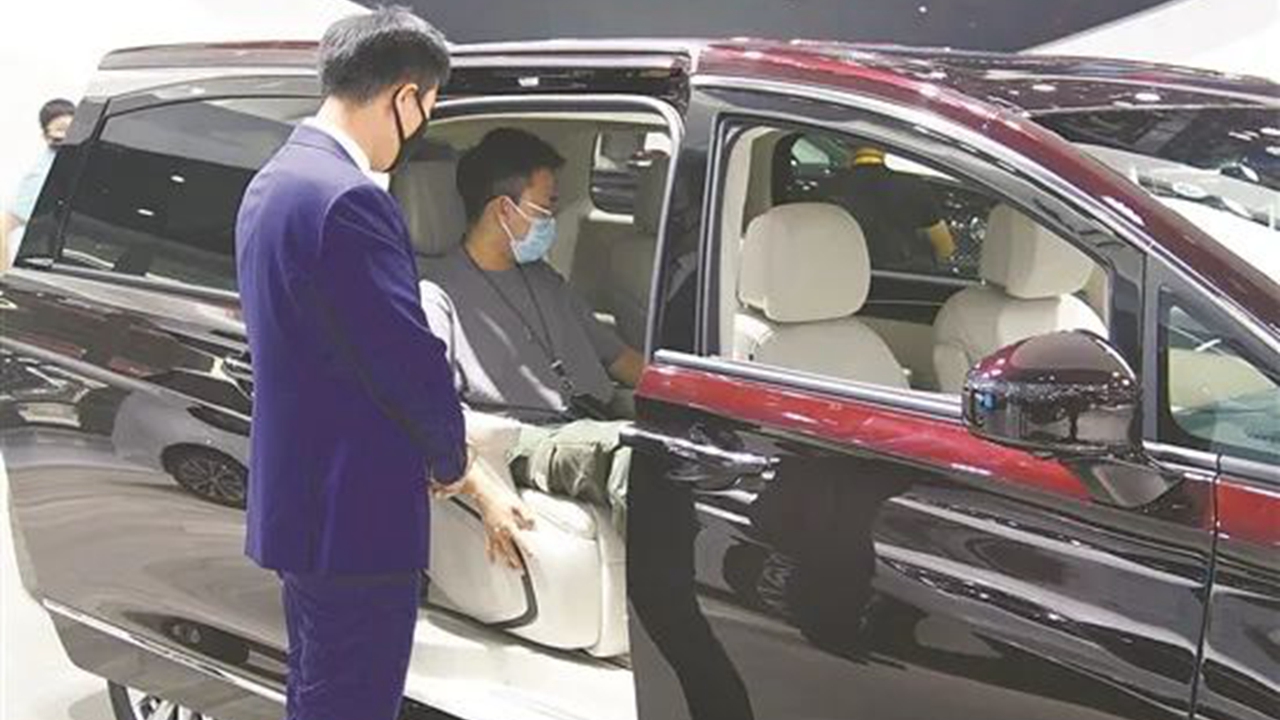Policy Spotlight | Policy updates you shouldn't miss
Writer: | Editor: Zhang Chanwen | From: | Updated: 2024-01-16
Streamlined entry policies unveiled for foreign arrivals: What's changed
Foreign nationals eligible for 24-hour visa-free transit arriving at Shenzhen Bao'an International Airport, as well as eight other airports in major Chinese cities, can now be exempt from border inspections, according to a new set of measures revealed by China's entry and exit authority.

Foreign passengers transit at Shenzhen Bao'an International Airport. Photo from Dute News
The National Immigration Administration (NIA) officially rolled out five new measures Jan. 11, with the aim of streamlining the visa application process for foreigners visiting China. These measures are geared towards facilitating business activities, educational pursuits, and tourism for international visitors.
1. Simplified port visa application process:
The first measure eases the conditions for foreign nationals applying for port visas (on-arrival visas). Individuals visiting for non-diplomatic, official business activities, exchanges, investment and entrepreneurship, private matters, or to see family members and facing time constraints for obtaining a visa beforehand can now apply for a port visa at a designated authority, presenting an invitation letter and other required documents.
2. Expedited 24-hour visa-free transit:
The second measure exempts eligible foreign nationals from border inspections during 24-hour visa-free transit at nine major international airports in China (including Shenzhen Bao'an International Airport, Beijing Capital International Airport, Beijing Daxing International Airport, Shanghai Pudong International Airport, Hangzhou Xiaoshan International Airport, Xiamen Gaoqi International Airport, Guangzhou Baiyun International Airport, Chengdu Tianfu International Airport, Xi'an Xianyang International Airport).

A foreign passenger transits at Shenzhen Bao'an International Airport. Photo from Dute News
Those with international interline tickets transiting to third countries or regions within 24 hours through any of these airports now enjoy visa-free direct transit, without undergoing border inspection procedures.
3. In-country visa extension and renewal:
The third measure allows foreign nationals already in China to apply for visa extensions, renewals, and reissues at the nearest public security organs. Those engaged in short-term non-diplomatic, official business activities, visits and exchanges, investment and entrepreneurship, tourism, or visiting relatives and with legitimate reasons for extending their stays can now submit applications to the nearest exit-entry administrations of the public security organs.
4. Flexible multiple-entry visa applications:
The fourth measure permits every foreign national already in China to apply for a multiple-entry visa where necessary. Individuals requiring a multiple-entry visa for legitimate reasons can now apply to an exit-entry administration of a public security organ with an invitation letter and accompanying documents.
5. Simplified visa application documentation:
The fifth measure simplifies the material requirements for visa applications for foreign nationals in China. Those whose accommodation records, business licenses, and other relevant information can be verified through shared information systems are now exempt from presenting physical certificates when applying for visas. Furthermore, when applying for a visa for short-term family visits or reunions with relatives in China, a declaration of kinship may be used as an alternative to the formal kinship certificate.
Shenzhen first city to allow nurses to prescribe drugs
Shenzhen has become the first city in China to allow specialist nurses to prescribe selected drugs and order diagnostic tests, in a move that is expected to increase efficiencies in the healthcare system and reduce the patient-load burden on physicians.

A nurse takes care of a newborn baby while the baby's mother walks by her side in a hospital in Pingshan District. Photo from Shenzhen Special Zone Daily
Under a new regulation released in October that took effect this month, eligible nurses will be authorized to order examinations, therapies and prescribe topical medications relevant to their area of expertise at specialist nursing clinics or community healthcare centers. Their prescriptions must be based on existing diagnoses issued by physicians.
Local health authorities will release catalogs of prescriptions that can be written by nurses and constantly adjust them.
To become a nursing specialist, applicants should have a bachelor's degree in nursing, five years of working experience, obtained an advanced nursing qualification, have attended a monthslong specialist training program and passed a final test.
"Medical institutions must promptly review inappropriate prescriptions or interventions made by nurses," said the regulation.
"Nursing specialists who are found to have given three or more improper prescriptions will have their prescribing power suspended for three to six months and will have to undergo retraining before regaining the authorization," it said.
In China, medical prescriptions can only be given by physicians. Worldwide, a number of countries, including the United States, Canada and the United Kingdom, have allowed nurses to write prescriptions.
First guideline for interior air quality of NEVs implemented
The country’s first guideline for evaluation of the interior air quality of new energy vehicles (NEVs) was implemented in Shenzhen recently. Companies in the automotive industry have been encouraged to voluntarily comply with its provisions.
The guideline, jointly proposed by the Shenzhen Municipal Ecology and Environment Bureau and the Shenzhen Institute of Standards and Technology, represents the country’s first group standard addressing NEVs' interior air quality. It also covers standards for pollutant limits and testing methods, Shenzhen Economic Daily reported.

A citizen observes the interior of a car on display at a car show. Photo from Yangcheng Evening News
In recent years, China has emerged as the world’s largest producer and seller of NEVs. Shenzhen, which is among the first cities in the country to promote NEVs and pilot the holistic electrification of public transport vehicles, collaborated with vehicle manufacturers and testing institutions to conduct research and formulate this groundbreaking guideline, the Daily report said. The initiative aims to address consumers’ growing demand for a healthy car interior environment and guide NEV makers toward producing high-quality vehicles, contributing to the green and high-quality development of NEVs.
The guideline covers six aspects and introduces the total volatile organic compounds index, expanding on the national standard of eight pollutants. Additionally, it tightens the limit requirements for benzene, toluene, xylene, and ethylbenzene in the pollutants.
Currently, the China Quality Certification Center South China Laboratory, CAS Testing, and Beijing ZHGC Environment Monitoring Center are qualified to conduct tests according to the standards outlined in the guideline.
City offers cash incentives to propel garbage sorting
Waste classification managers at residential compounds achieving excellence in trash sorting are eligible for a maximum annual subsidy of 100,000 yuan (US$13,999), according to the city’s incentive plan for garbage classification that came into force Nov. 1 last year.
The city’s urban management authority recently clarified the details of the plan, Shenzhen Economic Daily reported.

Residents of Changzhen Community in Guangming District learn knowledge about garbage sorting at a community event in November, 2023. Photo from Shenzhen Special Zone Daily
Specifically, the subsidy standard for excellent waste sorting managers at residential compounds is set at 50,000 yuan per 1,000 households.
For compounds with fewer than 1,000 households, the subsidy decreases by 10,000 yuan for every 200 households decreased, with the minimum subsidy set at 10,000 yuan. For compounds with over 1,000 households, the subsidy increases by 10,000 yuan for every 200 households added, capped at 100,000 yuan.
The calculation is based on the actual number of households in the residential compound.

Children engage in a garbage sorting game at an interactive waste management education center in Dapeng New Area. Photo from Shenzhen Special Zone Daily
The incentive fund is earmarked exclusively for the procurement and maintenance of waste classification facilities, promotional events, training sessions, and labor subsidies. The fund must be used up in the year of its issuance, as outlined in the plan.
The incentive plan, which is valid for three years, is designed to recognize and reward outstanding achievements in waste classification among various entities and individuals.
Eligible entities include residential compounds, urban villages, industrial parks, schools, hospitals, parks, markets, construction sites, government office areas, restaurants, and supermarkets. Individuals eligible for recognition under this program include teachers, community workers, volunteers, and property management staffers.